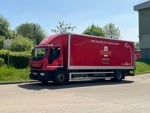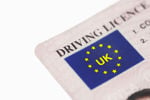The Government has ratcheted up the benefit in kind tax on free fuel over the last four years – with an outline commitment to continue the skywards tax hike by a further 20% in the next Budget – to the point where the receipt of free fuel no longer makes decent financial sense to either employer or employee.
Caroline Rai, a senior consultant on employee issues with KPMG, presented a calculation illustrating this point at the Fleet News Healthcheck, sponsored by, AA Business Services and Interleasing.
The example is based on a 40% tax payer driving a 1.9-litre company car that returns 30mpg, over 12,000 private miles a year, with unleaded petrol costing 70 pence per litre or £3.20 per gallon.
From the driver's perspective, the value of the free fuel is £1,280, although he pays tax at 40% on the fuel scale charge used to assess the value of the benefit. For a 1.9-litre petrol car, the tax charge is £2,460 so the actual tax payable is £984 (£2,460 x 0.4), so the benefit to the driver is £296 (£1,280-£984).
From the employer's perspective, the fuel costs £1,089 (ex-VAT) as well as a pro-rata VAT charge of £183 based on official Customs & Excise figures.
The employer also has to pay Class 1A National Insurance Contributions on the benefit, which amounts to £293. This makes the total cost to the employer of providing free fuel to be £1,565.
In total, therefore, providing free fuel to this driver costs £2,549 (the £984 tax paid by the driver and the £1,565 paid by the employer) to deliver a benefit value of just £296 to the driver. This equates to a tax rate of almost 90%. Instead, delivering the £296 in cash to the driver would cost the employer just £552 (including NIC).
















Login to comment
Comments
No comments have been made yet.